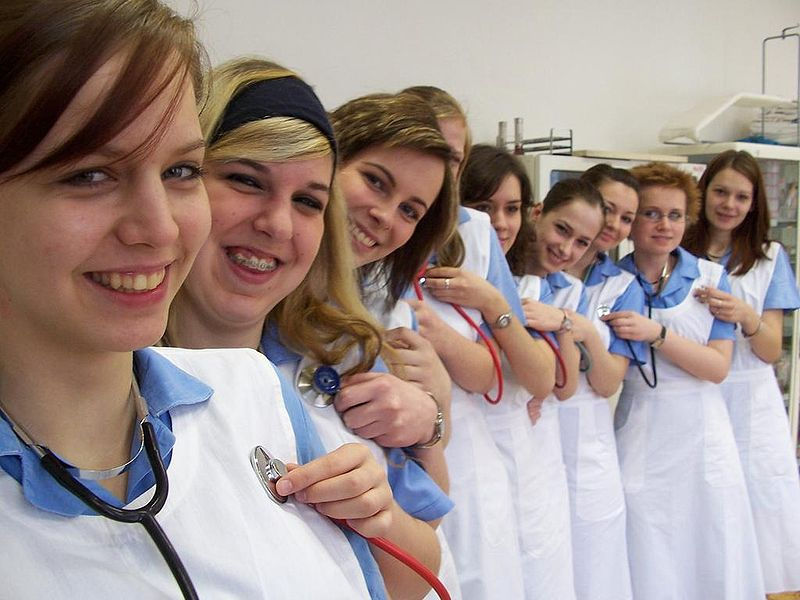
Nursing is one of the most difficult jobs anyone could choose to do. Despite 39 hour weeks and stingy wage deals however, nursing courses are still very much in demand. This begs the question: why would anyone choose to be a nurse in Ireland?
Louise McLoughlin is a final year intellectual disability nursing student in DCU. For her, nursing is something she has always wanted to do.
“I have always loved working with people and a lot of my friends and family are nurses so I grew up with it. From knowing a lot of nurses, I knew I would enjoy all the different aspects in nursing and the challenges it would bring.”
Along with normal student worries, student nurses have been hit by the Haddington Road Agreement. Under its terms, fourth year student nurses undertaking their 36 week placement programme are to be paid between 75 per cent and 90 per cent of the national minimum wage. Students are expected to work 39 hours a week, meaning Louise will have to give up the part time job she works to support herself.
“As an intern we are counted as 0.5 of a fully qualified nurse. I have been on 11 unpaid placements and for the wage to be lowered makes me feel devalued as a nurse”, she explained.
Although the Irish Nurses and Midwives Organisation accepted the agreement, it is still unhappy with many of its conditions. Dean Flanagan, the Student and New Graduate Officer for the INMO, criticised the wage cuts.
“The government consider it an internship and there is an internship pay scale. We are trying to argue the case that nursing isn’t like any other internship in terms that you are carrying out the tasks of the job and aren’t exactly learning as you go along.”
He also blasted the HSE’s graduate programme that offers jobs to newly qualified nurses. Under the scheme, the graduates can apply for 2 year contracts on the basis their wages are just 85 per cent of a normal staff nurse in their first year of work and 90 per cent in their second.
“When nurses leave college they are no longer a student even though they may not be a registered nurse yet. They are still working in hospitals and the work that they are carrying out is still that of a trained healthcare assistant, so we’re looking for them to get paid at least the first point of pay of a healthcare assistant.”
Many are leaving for Australia where graduates can earn the equivalent of nearly €40,000 a year. Closer to home, the National Health Service in Britain is facing a nursing crisis.
For Louise, the future is uncertain. “When I think of all the reasons to stay, the bad weighs out the good. At the moment I work as a care attendant for an agency and I earn good money, more money than I’ll receive if I take the graduate scheme as a fully qualified nurse. I would love to work in the hospital that I have trained in as I really do love the profession that I’m in. It just seems the government are punishing us.”
Sharon McGowan




Leave a Reply